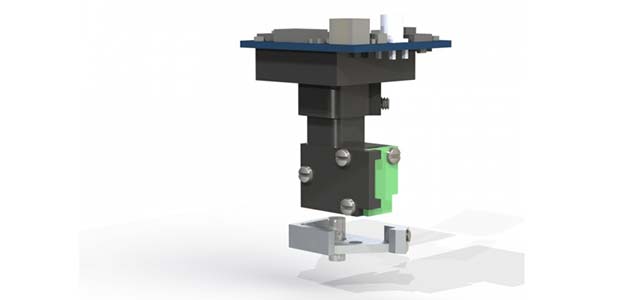UCLA Researchers Land $8.3 Million To Share Miniscope for Neuroscience

Researchers at the University of California Los Angeles have won an $8.3 million grant from the National Science Foundation to spread the technology behind a miniature microscope designed for use in brain research.
Dubbed the miniscope, the device is open-sourced, can be built from online instructions and has been put to use in at least 200 labs around the world so far. The tool can be mounted on an animal's head to see neurons firing and memories being created or to see the differences between healthy brains and those with neurological conditions.
Peyman Golshani, associate professor of neurology at UCLA and principle investigator on the grant, began working on the miniscope in 2011 after he read about a miniature microscope developed at Stanford. The mobile Stanford microscope opened up all kinds of research possibilities that aren't available with the heavy, physically fixed microscopes then typically used to capture neuronal activity, but commercial versions cost $150,000.
So Golshani partnered with other researchers at UCLA and Rockefeller University and produced a $1,000 version four months later.
The camera the team developed weighs four grams and is about one inch tall. Once a baseplate is implanted in a mouse's head, it can be snapped into place to capture fluorescent light from firing neurons through a small window
"The UCLA scientists posted parts lists and instructions for building and using the device, as well as links to video tutorials, on their own wiki page, which has become a forum for conversations with other scientists from around the world," according to a UCLA news release. "One researcher posted a note to say that a 2 gram model would be helpful for recording brain activity in songbirds, which prompted the UCLA team to produce a lighter version of the microscope. Another request from a scientist who studies bats prompted Golshani's lab to create a battery-powered wireless version that saves data onto a micro SD card."
"We've given this to the community and the community is using it," Golshani said in a prepared statement. "If you build a tool and let a lot of people use it for their own research, the impact is much, much larger than if you keep it to yourself."
About the Author
Joshua Bolkan is contributing editor for Campus Technology, THE Journal and STEAM Universe. He can be reached at [email protected].